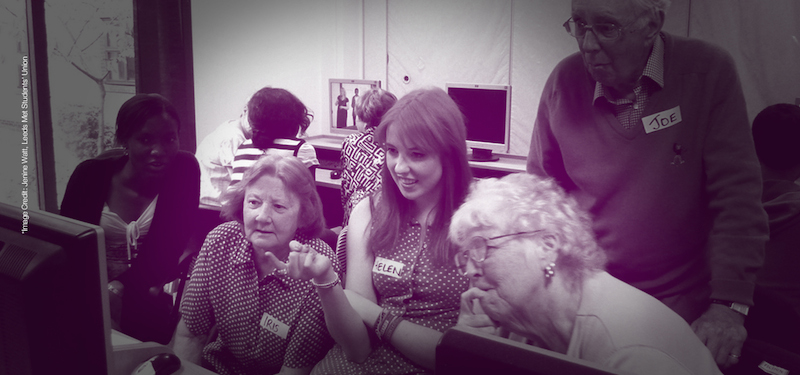Most of us take digital technology and the Internet for granted. It is something that has become so deeply embedded in our daily lives, that we can barely function when we momentarily lose access to it. Yet for some 7.1 million adults in the UK, their lives have always been and remain unplugged and offline.
A large proportion of the digitally excluded are society’s most vulnerable and disadvantaged, with the elderly and disabled most likely to be disconnected. The barriers preventing these households from connecting to the Internet include a lack of computer skills, and equipment and access costs. However, contrary to expectations, the majority has actively chosen not to subscribe. In order to tackle digital exclusion, we must therefore not only remove the barriers to Internet access, but also challenge perceptions of the Internet as an unnecessary luxury that people can do without.
As society becomes more digitalised, those who remain offline will be at greater risk of being economically excluded. Without digital skills, you’re increasingly cut off from the labour market, both in terms of not seeing the majority of job adverts that are now posted online, as well as lacking the basic computer skills needed in 90% of new jobs. You’ll struggle to claim benefits, as more of the welfare system becomes exclusively managed online. You’re also more likely to be worse off in comparison to households who shop and pay bills online – by approximately £560 a year.
People should not by penalised for not being online. They should not be forced to connect to the Internet out of societal pressure, but rather be encouraged to do so because of the personal and social benefits the Internet can bring. Age UK and other leading charities are promoting the Internet as an invaluable tool to tackle elderly isolation and loneliness in the UK. Skyping overseas relatives, joining online forums, and researching local support and community groups can drastically improve people’s quality of life.

At Student Hubs, we have recently developed our Tech for Good programme (currently run by our Hubs at Imperial College, London and at Oxford) in order to use the power of technology to drive social change – tackling digital exclusion, fostering intergenerational connections and creating new opportunities through several projects.
Our Tech Connectors project matches university students with elderly individuals who would benefit from basic computer literacy skills. Offering one to one support is not only the most effective way of getting people up to speed with computing tasks and showing them the advantages of being online, but also a way of building mutually enriching relationships between younger and older generations.
Additionally, tech-savvy students have the knowledge and enthusiasm that can inspire children and younger people to grow their computing skills, and gain greater interest and confidence in related STEM subjects and careers. Many children in the UK nowadays can easily find their way around a computer or tablet, but are nevertheless falling behind their counterparts in other countries where they’re taught coding and programming from an early age. These skills have been introduced into the national curriculum for the coming year, as they will be essential in the future job market, and yet schools currently lack the capacity to teach them.
Our student volunteers leading Code Club and Coder Dojo projects teach children and young people these skills for free, ensuring no child loses out because their parents can’t afford private tuition or don’t own a computer, and in a fun, interactive way – to encourage them to enjoy and excel in coding and related STEM subjects, and reach their potential regardless of their background.
Digital technology isn’t the miracle cure for all of society’s problems – indeed it causes many of its own problems. However, it can contribute to a basic standard of living, which we should expect for anyone living in the UK, and opens new possibilities for people of all generations. We’ve made a lot of progress in tackling digital exclusion in the past ten years, but we can still do more to enable everyone to make the most of the digital age.
[blog_footer]
Featured photo by Jenine Watt, Leeds Met Students’ Union.
[/blog_footer]
